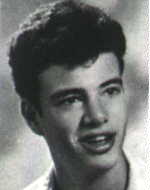Dvir (Rivkind), Yaakov
Their son was the firstborn of Abraham and Leah. He was born in Petach Tikva on August 2, 1943, as a member of an old family in Petach Tikvah and completed his studies at the AD Gordon elementary school as a graduate of the first graduating class. After two years of study at the Brenner High School in Petah Tikva, he decided to try kibbutz life and spent one year at Mishmar Ha’emek High School. On his way to fulfilling his aspiration to become a journalist, he was forced to abandon his studies in the kibbutz, and continued in an academic school to win a matriculation certificate. He was a lively and lively lad, good-hearted and honest, very sensitive to justice and fighting for him stubbornly. He was a symbol of devotion, friendship and love for his family and wanted to be a soldier and a fighter for the homeland. Yaakov was drafted into the IDF in May 1961, immediately after the matriculation exams, successfully completing a course for squad commanders and demanding that he serve in a combat unit, and finally was assigned to the Golani Brigade, on the 17th of Adar 5723 (March 17, 1962) Before leaving for the officers’ course, the IDF attacked the Syrian positions in Nukib that attacked Israeli fishermen on the Sea of Galilee. Brigade commander Lt. Col. Mota Gur said that when volunteers were asked to reinforce the attacking force, Yaakov volunteered happily, and during the battle Ya’akov’s half-track mounted a mine but was not hit. Later on, he was ordered to clear mines. He did it with a bayonet and was not hurt again. During the retreat, after the operation ended, his comrades saw him again, but immediately heavy shelling began, and since then no one knows what happened to him. There are two theories: One, that Yaakov was hit by a direct hit by a shell, and therefore they did not find the force that surveyed the place several times with great trepidation. The other explanation – that he was wounded, remained in the area and fell into Syrian hands. As usual, they claimed he did not have them. Eli Cohen, may God bless him and grant him peace, wrote a book about his life in which he made great efforts to discover it in the Syrian prisons, but nothing came of it. A monument has been erected in his memory, and the space is a macaloon – a space whose burial place is unknown.
